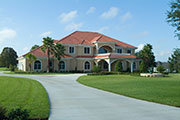
MONDAY, Feb. 17, 2014 (HealthDay News) — People who live in rich neighborhoods are more likely to be materialistic, compulsive spenders and poor savers than those in less wealthy areas, a new study shows.
This is especially true for young people who live in cities and are relatively poor in comparison to their high-end surroundings, according to the San Francisco State University researchers.
They compared data about neighborhoods’ wealth and residents’ responses to survey questions about their spending and saving habits, views about money and desire to have things.
People who live in rich neighborhoods may be more likely to be materialistic and more free-spending due to something called “relative deprivation,” which is the feeling people experience when they believe they have less than those around them, explained study co-author Ryan Howell, an associate professor of psychology.
If a person is constantly exposed to displays of wealth — such as neighbors with expensive cars and other items — they are more likely to feel they need to spend money to show that they’re wealthy, even if it isn’t true.
“People who live in more affluent areas are vulnerable to this implicit social comparison, where you start to see other people spending a lot of money,” Howell said in a university news release. “Because you feel the need to live up to that standard, you end up impulsively buying material items, even though they don’t actually make you happier.”
The study was published online Feb. 14 in the Journal of Consumer Culture.
“There are policy implications to all of this,” Howell said. “Putting up billboards that flash materialism and wealth all over the place has an impact on people’s value system. So we need to better understand the phenomenon, learn how far it extends and how we can prevent it from happening.”
More information
The American Psychological Association outlines the harmful effects of consumerism.
Copyright © 2026 HealthDay. All rights reserved.

